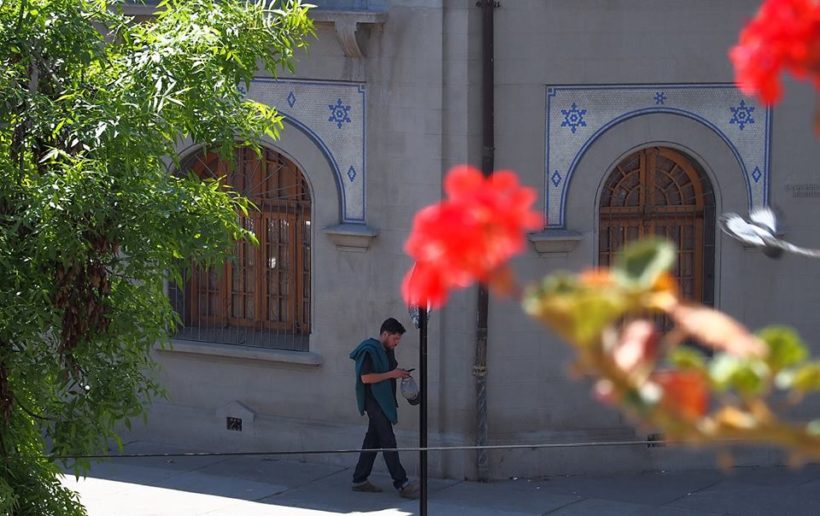The Jews living in Spain were expelled in 1492 by the very Catholic kings Ferdinand and Isabella. The reasons for this expulsion have given rise to controversy, but it seems to have been at the request of the Inquisition. The Spanish Jews spread throughout the world, to Europe, to Asian Turkey and perhaps even to this newly “discovered” America. But for them Spain, which they called Sepharad, was always their lost homeland. Hence the expression “Sephardim” to designate these Jews, different from the Ashkenazim, who came from Germany and Eastern Europe.
By Margarita Labarca Goddard
One of the most touching things about the history of the Sephardim is that they preserved the language. Whatever country they came to live in, their language was Spanish. They spoke it and still speak it at home, they teach it to their children, they speak it among themselves, but the Spanish they speak is from the 15th century, with some additions of Polish, Russian, or Turkish. This is unavoidable, you acquire part of the language of the country you live in, sometimes without realising it.
So, a new language has been created, Ladin, made up mainly of old Castilian and embellished with other words. It is a very sweet language, very tender and somewhat sad, like longing and nostalgia. Thus, they themselves explain that “The djudeo-espanyol, djudezmo or ladino is the language favoured by the Sephardim, Jews expelled from Spain in 1492”.
The Sephardim kept the keys to their homes in Spain and handed them down like a treasure from father to son, even though they knew that many of them would be demolished. “They were the keys to their memory, to their heart, to their past,” says writer Julio Llamazares. The Jewish grandmothers also took their recipes, which were handed down from generation to generation, with them in their travelling bags. It is one of the ways they found in exile to never forget their land.
I think that we Chileans who had to go into exile and stayed there are a bit like the Sephardic Jews expelled from Spain. We have kept a language that is no longer spoken in Chile. Whenever we go there, people don’t understand us and we understand even less. We no longer know what the most common things are called, how the young people of today speak, how they buy cigarettes.
We also keep the empanadas, the humitas, the cazuelas, the caldillo de congrio, the pebre, the porotos con riendas and so many other dishes that are part of patriotism and that, like the language, are the key we carry in our pockets, the key to our Sepharad.
In Chile the architecture has changed, the cities are not the same, the house we are looking for cannot be found because it no longer exists. The provinces now have numbers, in Santiago we only recognise a few places and only very few places recognise us. People have changed, those who were our friends are no longer there: they are either gone or dead. Those who were assassinated by the dictatorship when they were very young have remained eternally young while we grow old.
It is true that the Spanish language is very different in each Latin American country. I have lived in several and I still get a lot of confusion. Chileans eat up a lot of letters. Instead of saying “universidad” they say “universiá”, instead of verdad, “verdá”, instead of trabajar, “traajar” and so on. Those of us who live abroad and have become accustomed to a different way of speaking Spanish, perceive these defects more.
Sometimes there are nice details in all this. I have a nephew who is married to a French girl. They have lived almost always in France, with an interval of about five years in Chile. The girl learned to speak Spanish very well, but with absolutely Chilean idioms – and very popular Chilean ones – because she worked as a teacher in Cerro Navia. And to hear her speak that proletarian Chilean with a French accent is a delight.
We exiles are the guardians of a beautiful language, enriched with some Venezuelan, Mexican, Cuban and Argentinian expressions. But the trunk of this ladino-chilensis is the old, rich and varied Castilian that was spoken in our country 40 years ago. Of course, we are also abandoning some expressions that in other places mean nothing or mean different or rude things, although we are often mistaken and make mistakes.
Now in Chile the language has been impoverished. In any case, there are few who speak and fewer who write without fuss, in a sober and clear language. It may be the influence of economists, but it has become a habit to say easy things in a difficult way, to make complicated what is simple.
And I was saying that we, the forever exiles – who may never return because space and time have become insurmountable – nevertheless preserve a language that is long gone. We use old words and expressions to preserve and protect them from oblivion. And our children and grandchildren use them too, because they have learned them from us and do not know that nobody in Chile knows them anymore. It is our ladino.










